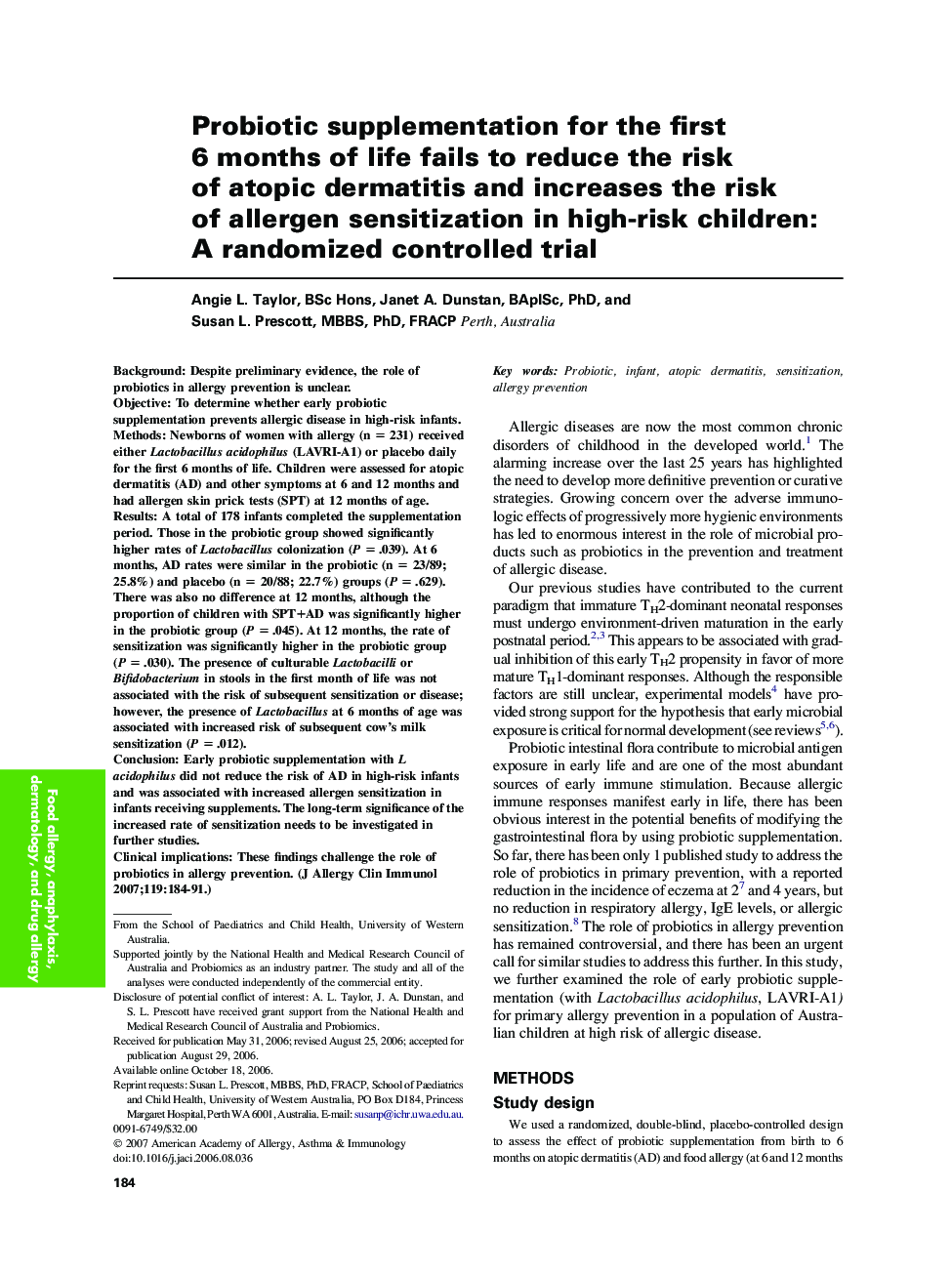| کد مقاله | کد نشریه | سال انتشار | مقاله انگلیسی | نسخه تمام متن |
|---|---|---|---|---|
| 3202387 | 1201971 | 2007 | 8 صفحه PDF | دانلود رایگان |

BackgroundDespite preliminary evidence, the role of probiotics in allergy prevention is unclear.ObjectiveTo determine whether early probiotic supplementation prevents allergic disease in high-risk infants.MethodsNewborns of women with allergy (n = 231) received either Lactobacillus acidophilus (LAVRI-A1) or placebo daily for the first 6 months of life. Children were assessed for atopic dermatitis (AD) and other symptoms at 6 and 12 months and had allergen skin prick tests (SPT) at 12 months of age.ResultsA total of 178 infants completed the supplementation period. Those in the probiotic group showed significantly higher rates of Lactobacillus colonization (P = .039). At 6 months, AD rates were similar in the probiotic (n = 23/89; 25.8%) and placebo (n = 20/88; 22.7%) groups (P = .629). There was also no difference at 12 months, although the proportion of children with SPT+AD was significantly higher in the probiotic group (P = .045). At 12 months, the rate of sensitization was significantly higher in the probiotic group (P = .030). The presence of culturable Lactobacilli or Bifidobacterium in stools in the first month of life was not associated with the risk of subsequent sensitization or disease; however, the presence of Lactobacillus at 6 months of age was associated with increased risk of subsequent cow's milk sensitization (P = .012).ConclusionEarly probiotic supplementation with L acidophilus did not reduce the risk of AD in high-risk infants and was associated with increased allergen sensitization in infants receiving supplements. The long-term significance of the increased rate of sensitization needs to be investigated in further studies.Clinical implicationsThese findings challenge the role of probiotics in allergy prevention.
Journal: Journal of Allergy and Clinical Immunology - Volume 119, Issue 1, January 2007, Pages 184–191